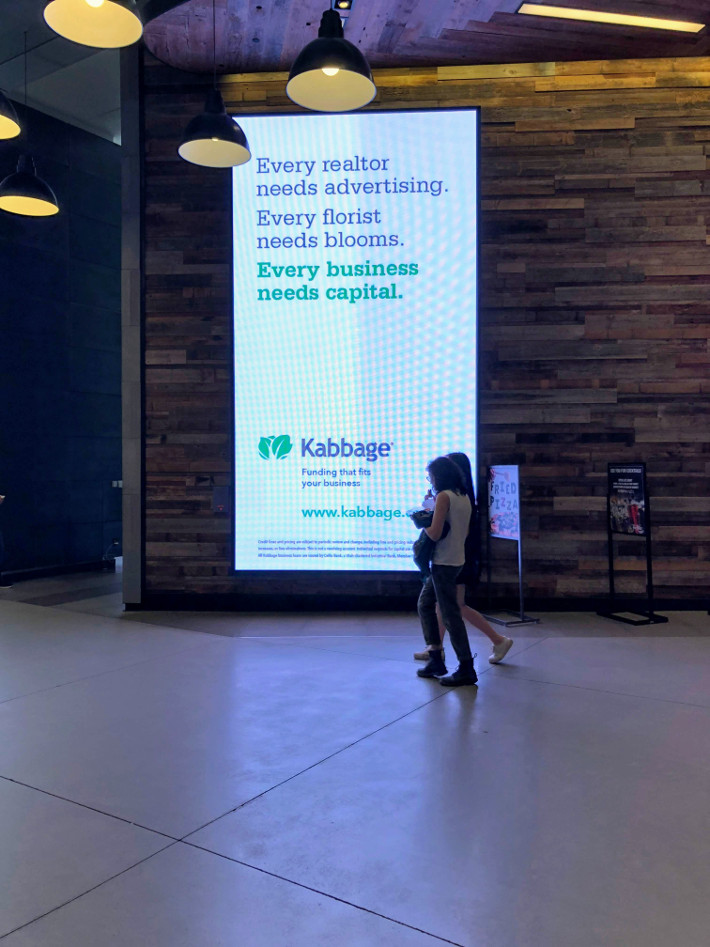Articles by deBanked Staff
NYC’s Small Business Loan Program Stops Accepting Applications After Just 3 Weeks
February 13, 2023 The opening of NYC’s $75M Small Business Opportunity Fund backed by a combined partnership of Goldman Sachs, Mastercard, Community Reinvestment Fund, and CDFIs was heralded as historic. Cheered as the largest public-private loan fund ever directed at small businesses, which stood to offer 5-6 year loans up to $250,000 at a rate of 4% interest to help them recover from the pandemic, the program kicked off on January 23. Just three weeks later, however, the acceptance of new applications has been halted.
The opening of NYC’s $75M Small Business Opportunity Fund backed by a combined partnership of Goldman Sachs, Mastercard, Community Reinvestment Fund, and CDFIs was heralded as historic. Cheered as the largest public-private loan fund ever directed at small businesses, which stood to offer 5-6 year loans up to $250,000 at a rate of 4% interest to help them recover from the pandemic, the program kicked off on January 23. Just three weeks later, however, the acceptance of new applications has been halted.
“Due to the high level of interest, the NYC Small Business Opportunity Fund has temporarily paused intake of new applications while our lending partners assess completed applications,” the official website states. News reports claim the that fund was swarmed with 10,000 applications.
Indeed, that is already more than 6x the maximum number of loans that the fund was set up to support. The Fund envisioned a maximum of 1,500 total loans originated before the capital was exhausted. The approval criteria itself is lenient as the fund boasts that there is no minimum credit score requirement. Documentation supporting an ability to repay the loan is required, however.
Businesses that didn’t apply early are told that they can fill out an inquiry form to be notified if the fund reopens.
Examining the Charge Off Rates on PayPal’s Business Loans
February 13, 2023Wondering how a competing small business lender with more than $17 billion in originations since inception has been doing lately with? Check out some of PayPal’s business loan and MCA stats:
| Period | % of Merchants Within Expected Timeframe | % of Merchants > 90 Days Past Expected | Net Charge-offs |
| 2017 | 87.4% | 5.5% | |
| 2018 | 91% | 3.7% | |
| 2019 | 89.6% | 4.2% | 7.4% |
| 2020 | 75.4% | 12.5% | 18.9% |
| 2021 | 91.8% | 3.1% | 4.7% |
| 2022 | 90.7% | 3.7% | 4.5% |
Enova’s Current Small Business Lending Strategy
February 10, 2023 “We are being very conservative with our small business lending right now. There’s a tremendous amount of demand,” said David Fisher, CEO of Enova, on the company’s most recently quarterly earnings call. “I think both demand from businesses who need money coming out of COVID still but also from a lack of competition and a reduction of competition. So there’s a tremendous amount of demand. We’re filling a very small portion of it as we are trying to remain very, very conservative with respect to our originations, so we can manage through any turmoil in the economy.”
“We are being very conservative with our small business lending right now. There’s a tremendous amount of demand,” said David Fisher, CEO of Enova, on the company’s most recently quarterly earnings call. “I think both demand from businesses who need money coming out of COVID still but also from a lack of competition and a reduction of competition. So there’s a tremendous amount of demand. We’re filling a very small portion of it as we are trying to remain very, very conservative with respect to our originations, so we can manage through any turmoil in the economy.”
Fisher said that for its small business lending right now, the focus is really on diversification, that being “diversification across states, across industries, across product types and across kind of the credit spectrum.”
“…as we’ve just seen over the last 6 to 12 months, there are some industries that are doing well for a couple of quarters and some that are doing worse and then that rotates,” he said. “And having that strong diversification has allowed us to manage through that variability over the last couple of years without too much difficulty.”
Despite the company’s conservative strategy right now, Enova still managed to originate $826M in small business loans in Q4 2022, an increase from the $807M in the previous quarter.
Given all of Enova’s consistent success, especially in the current environment, one analyst asked if there was a play for the company to increase its marketshare.
“So we’re not being super aggressive with taking share right now because we don’t want to be too aggressive with our lending,” Fisher replied. “But we continue to build out products and expand the types of opportunities we can offer to small businesses and we’ll continue to do that over time so that as we do get aggressive hopefully in the next — more aggressive over the next 6 to 12 months, we can take our industry-leading position, combine that with the new products that we can offer customers and we’ll be even in a more dominant position. So we’re gaining share kind of just by the fact that competitors are pulling back even more due to credit concerns or lack of capital and we’re fine with that. But we’re not trying to maximize our market share right now because we do want to make sure that we’re being smart about credit. But continuing to build in the background so that when we do get more aggressive, we’re really well positioned.”
New Challenge to MCA Legality in New York
February 10, 2023 It’s effectively well settled law, that proper purchases of future receivables are not considered loans in New York State. But a three year-old merchant cash advance case is poised to become center stage for a fresh review of that policy.
It’s effectively well settled law, that proper purchases of future receivables are not considered loans in New York State. But a three year-old merchant cash advance case is poised to become center stage for a fresh review of that policy.
At issue is AH Wines Inc., et al. v C6 Capital Funding LLC which the New York Court of Appeals recently agreed to hear. The crux of the plaintiff’s arguments has been that defendant’s purchase of future receivables was actually a usurious loan. The plaintiff was unsuccessful at both the trial court level and appellate level with their case and so appealed to the highest possible court in New York, the Court of Appeals. On February 9, the motion for leave to appeal was granted.
A Quick Analysis of Bank Data? Kuboon!
February 8, 2023 Accessing a small business borrower’s bank statement data is nothing new but Kuboon, not to be confused with kaboom, gives the whole experience an upgrade. A lender can embed Kuboon’s technology into their existing CRM with a simple line of code and be up and running in no time.
Accessing a small business borrower’s bank statement data is nothing new but Kuboon, not to be confused with kaboom, gives the whole experience an upgrade. A lender can embed Kuboon’s technology into their existing CRM with a simple line of code and be up and running in no time.
According to Kuboon VP of Sales Brysen Partridge, the technology doesn’t necessarily compete with universal tools like Plaid and Finicity because Kuboon actually uses them too.
“So we compare differently because our engines are far more advanced,” said Partridge, “[The big aggregators] give you a small out of the box engine of just giving the transactions and then you have to come up with your dev team to try and filter out and fix and categorize all those transactions and make them into something useful. We do all that for you…”
Partridge said that’s far from everything. “It’s not just bank details,” he said. “We have payroll and ID data. We have other sources that are coming in soon that will provide a ‘complete integrated intelligence.'”
Recognizing that not everyone will embed it, Partridge said that Kuboon can also be used as its own standalone CRM, a feature they call Kuboon Lobby and that many clients choose to use it this way.
Lightspeed’s MCA Business is Growing
February 2, 2023Lightspeed Commerce, a global e-commerce platform for merchants, reported an increase in its merchant cash advance business in its latest earnings report. As of December 31, 2022, $15.8M of mcas were outstanding, up 25% from the previous quarter, the company announced.
Lightspeed is no small company. It reported $188.7M in total revenues for the most recent fiscal quarter, $74.5M of which was drawn from subscriptions and $107.2M from transactions.
“To further complement our core cloud solutions, we offer a merchant cash advance program called Lightspeed Capital,” the company said in its quarterly statements. “This program provides cash advances to eligible merchants and is designed to help them with overall business growth and cash management.”
New York Finalizes its Commercial Financing Disclosure Rules
February 1, 2023 That’s all folks. New York State’s Department of Financial Services has finalized its rules on commercial financing disclosures. The Fifty-three page rulebook dictates what covered parties will be required to do.
That’s all folks. New York State’s Department of Financial Services has finalized its rules on commercial financing disclosures. The Fifty-three page rulebook dictates what covered parties will be required to do.
“The New York State Department of Financial Services received 21 comments on proposed revised rule 23 NYCRR 600,” a note accompanying the finalized rules said. “The Department has considered every comment received and has made several revisions…”
Those expecting years of possible back-and-forth commentary like what happened in California may be surprised to find that this is the final version. The effective date of the rule is the date the notice is published in the State Register, but compliance with the rules themselves is slated to take effect six months from that date (please consult with attorney to confirm).
“Clear and easy-to-compare disclosures are paramount as entrepreneurs and small businesses evaluate financing,” said DFS Superintendent Adrienne A. Harris in an official press release.
Kabbage Rebrands to Business Blueprint
January 31, 2023 Kabbage by American Express is now Business Blueprint. A lot of terminology on the former Kabbage website, which now forwards to an official page on the American Express website, have already been reworded. Kabbage Funding, for example, is now being referred to as American Express Business Line of Credit and the Kabbage mobile app is now the American Express Business Blueprint app.
Kabbage by American Express is now Business Blueprint. A lot of terminology on the former Kabbage website, which now forwards to an official page on the American Express website, have already been reworded. Kabbage Funding, for example, is now being referred to as American Express Business Line of Credit and the Kabbage mobile app is now the American Express Business Blueprint app.
On social media, American Express Group President of Global Commercial Services & Fraud Risk at American Express said, “today marks an important milestone for us, as we fully integrate Kabbage into American Express with the launch of Business Blueprint.” Marrs continued by saying that American Express will work towards becoming a digital one-stop-shop for small businesses’ financial needs.
Although it is not specifically stated, negative news headlines related to Kabbage’s former PPP business before the American Express acquisition probably contributed to the official rebrand.






























